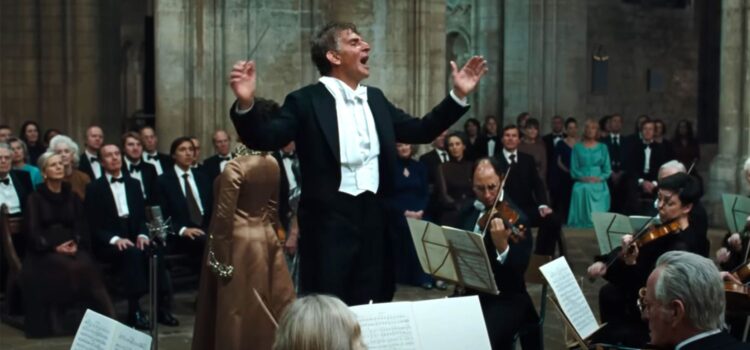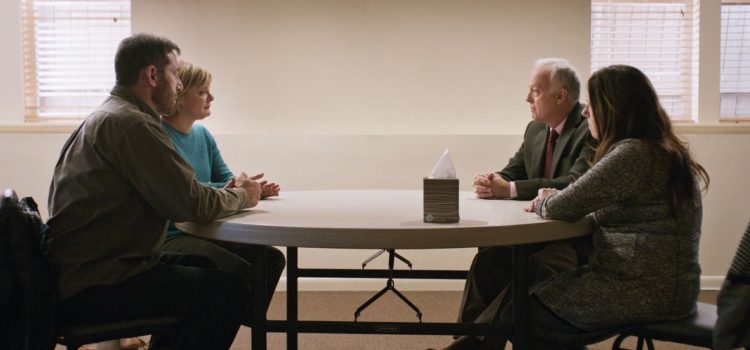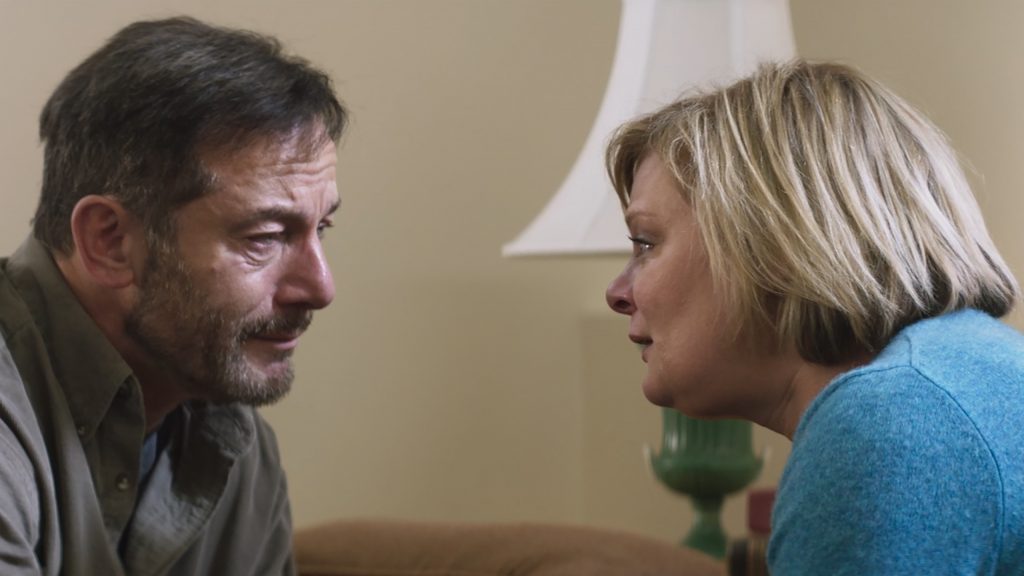By Lynn Venhaus
Geniuses are complicated; therefore, the life of America’s first superstar conductor and composer Leonard Bernstein is explored in an uncommon yet charismatic way in “Maestro.”
“Maestro” chronicles the complex 30-year relationship between Leonard Bernstein (Bradley Cooper) and actress Felicia Montealegre Cohn (Carey Mulligan) in an intricate portrait of art and love.
At their career-best are Bradley Cooper and Carey Mulligan who eloquently capture the passion of two people experiencing the highs and lows of an artistic life in the spotlight. They’re terrific together, and they throw themselves into these roles with a heartfelt and powerful intensity that’s mesmerizing throughout this unconventional 30-year love story.
As director, co-writer and star, Cooper masterfully conveys a larger-than-life cultural icon from his first conducting opportunity at Carnegie Hall when he was 25 to his later years after Felicia’s death in 1978. But he doesn’t gloss over his flaws, particularly as an often selfish, self-absorbed artist accustomed to attention.
The dynamic between the couple is the film’s biggest strength. And in crafting indelible portraits, they both are flawless executing the speech cadences of their characters. Mulligan, in particular, adds emotional depth to Felicia’s steely resolve and confused feelings.
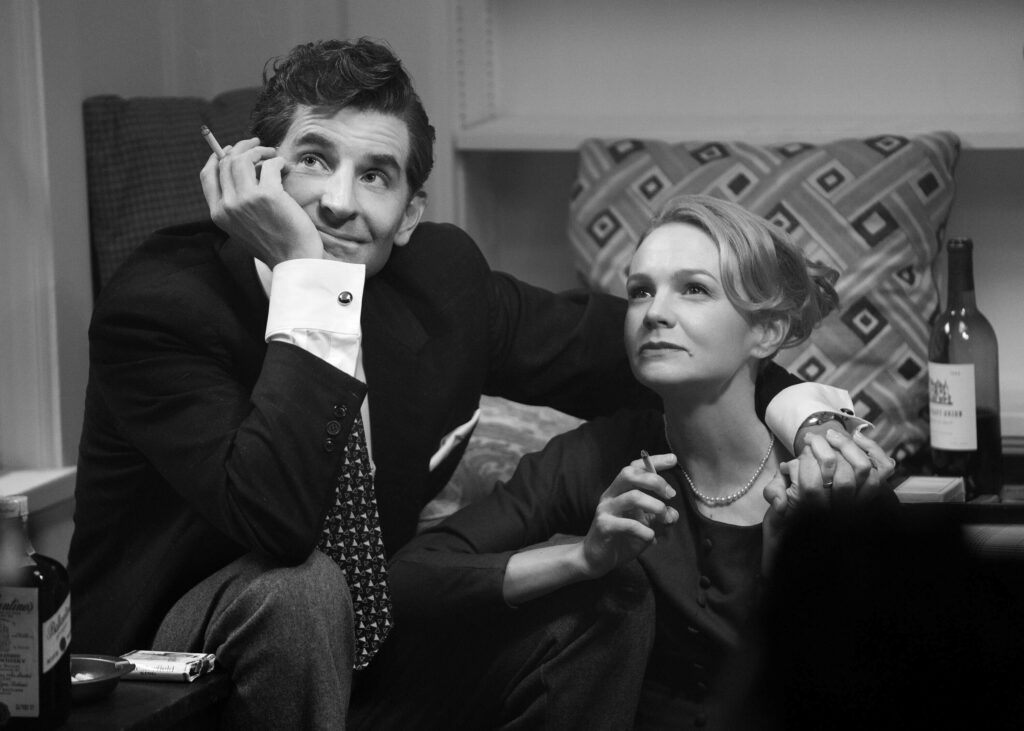
The movie isn’t your typical linear womb-to-tomb biopic, and Cooper made the decision to concentrate on the married couple’s mercurial yet unbreakable union that produced three children despite the tangled nature of Bernstein’s sexuality.
His open affairs with men are more implied than delved into, however, with Matt Bomer miniscule as early lover David Oppenheim and Gideon Glick as later lover Tommy Cothran. In real life, Bernstein separated from Felicia to live with Cothran, and then returned when she became terminally ill, but that’s not specifically mentioned – only surmised.
Cooper and Josh Singer, Oscar winner for “Spotlight” who worked with producer Steven Spielberg on “The Post,” focused more on the family situation, with career highlights woven into an intriguing life tapestry.
Bernstein’s zest for living was contagious, and he dreamed big. He achieved unparalleled success in music – both conducting the New York Philharmonic Orchestra and for his legendary compositions and was the first American conductor to get international acclaim.
I remember his “Young People’s Concerts” (1958-1972) on television on Sunday afternoons. He was the first conductor to share and explore classical music to a mass audience that way.
His range was vast, and he won seven Emmys, two Tonys, and 16 Grammys during his lifetime.
One drawback is that if you aren’t familiar with Bernstein’s epic body of work, you may be lost, for there are no date stamps and sometimes only a quick reference to the material. The music score features Bernstein’s most famous compositions, re-recorded for the film.
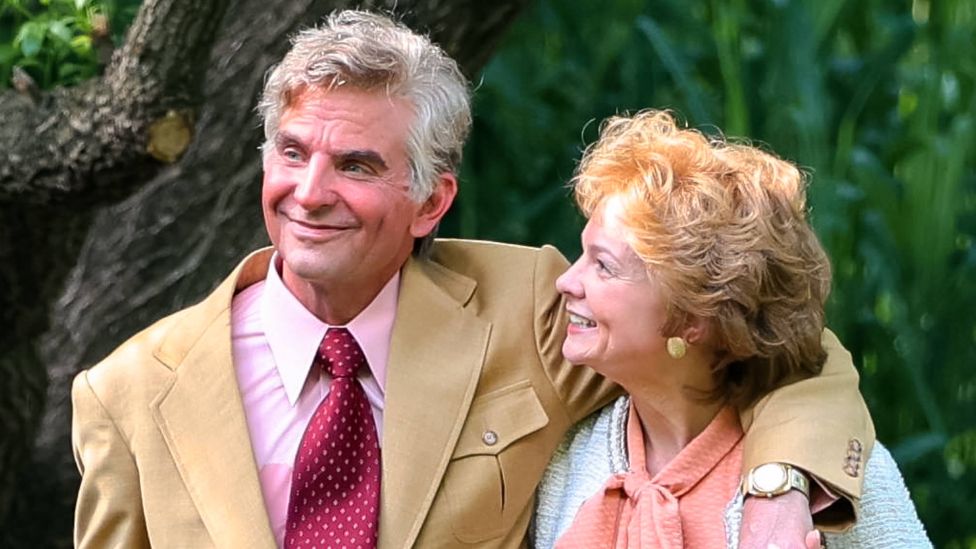
If you didn’t know about his Broadway musical theater works “On the Town” in 1944 and “West Side Story” in 1957, both choreographed by Jerome Robbins, you’ll not be further enlightened unless you do your own research, for you only hear snippets here.
His supple compositions for “West Side Story,” arguably the greatest musical theater score of all-time with lyricist Stephen Sondheim, are barely a footnote. His propulsive Oscar-nominated score for the 1954 Best Picture winner “On the Waterfront” is another masterpiece getting only a brief mention.
Some of his massive choral pieces “Candide” and “Mass” are presented in rehearsal and performance, but again, without a timeline, one may not recognize their significance. That must be frustrating to those who didn’t grow up with his music, which I did – and recognize there are gaps for a modern audience.
The film’s best scene is Bernstein vigorously conducting the London Symphony Orchestra in Mahler’s Second Symphony (“Resurrection”) performed at the Ely Cathedral in 1973. It’s an incredible show-stopper – but without knowing what or when. Still, that scene is stunning, revealing his musical virtuosity and innate theatricality for six and a half minutes – and resulted in the New York Film Festival audience bursting into thunderous applause and cheers. It was as if we witnessed Bernstein become the music.
Credit must go to conducting consultant Yannick Nézet-Séguin, whose expertise helped Cooper feel the music, and it’s thrilling. He is currently conducts the Metropolitan Opera at Lincoln Center.
The look of the film is luxe, especially the sumptuous black-and-white cinematography by Matthew Libatique that depicts a dazzling magical time for young artists in Manhattan in the ‘40s and ‘50s.

The costumes designed by Mark Bridges are also swoon-worthy, with Mulligan’s outfits not only representing Felicia’s class and grace, but also their rising fortunes. Bridges is a two-time Oscar winner for “The Artist” and “Phantom Thread,” and has a keen eye for textures and detail. The scene where Felicia wears a Chanel suit to get bad news from her doctor is a small, but memorable, character element.
Special make-up effects artist Kazu Hiro’s seamless transformation of a 48-year-old Cooper into Bernstein at different ages is stunning, with the prosthetics lifelike. He has won two previous Oscars, for “Bombshell” and “The Darkest Hour,” transforming Gary Oldman into Winston Churchill.
Production designer Kevin Thompson’s affinity for details is striking, from the concert halls to the private residences, particularly Bernstein’s’ idyllic country home in Connecticut and a lavish apartment in the historic Dakota building. Thompson’s previous work includes “Birdman or (The Unexpected Virtue of Ignorance)” and “Ad Astra.”
The sound mixing and editing is astonishing in aural quality and should be recognized with year-end awards. That level of excellence is not just reserved for big blockbuster visual effects extravaganzas.
Even by narrowing the focus, the movie still spans decades of remarkable achievements while offering a warm portrait of a comfortable family life, with the three Bernstein children surrounded by love and affection. Maya Hawke portrays eldest daughter Jamie as a teenager with questions, Sam Nivola is son Alexander and Alexa Swinton is daughter Nina.
Another key supporting performance in this tableau is Sarah Silverman as Lennie’s sister Shirley. Bernstein’s lifelong friend Aaron Copeland (Brian Klugman) doesn’t get much screen time.
The movie packs many details in its 2 hours, 9 minutes run time, and perhaps would have been clearer in a limited series, like “Fosse-Verdon.” However, a second viewing produced far more nuance and narrowed attention.
The majestic grandeur came through on a large screen, and because the scope is ambitious, I hope it is not lost on the smaller screen.
But those bravura performances will linger no matter what format.
“Maestro” is a 2023 drama, biography directed by Bradley Cooper and starring Cooper, Bradley Cooper, Carey Mulligan, Matt Bomer, Maya Hawke, Sarah Silverman, and Gideon Glick. It is rated R for language and some drug use and it’s runtime is 2 hours, 11 minutes. In select local theaters Dec. 8 (St. Louis area) and streaming on Netflix Dec. 20. Lynn’s Grade: A-
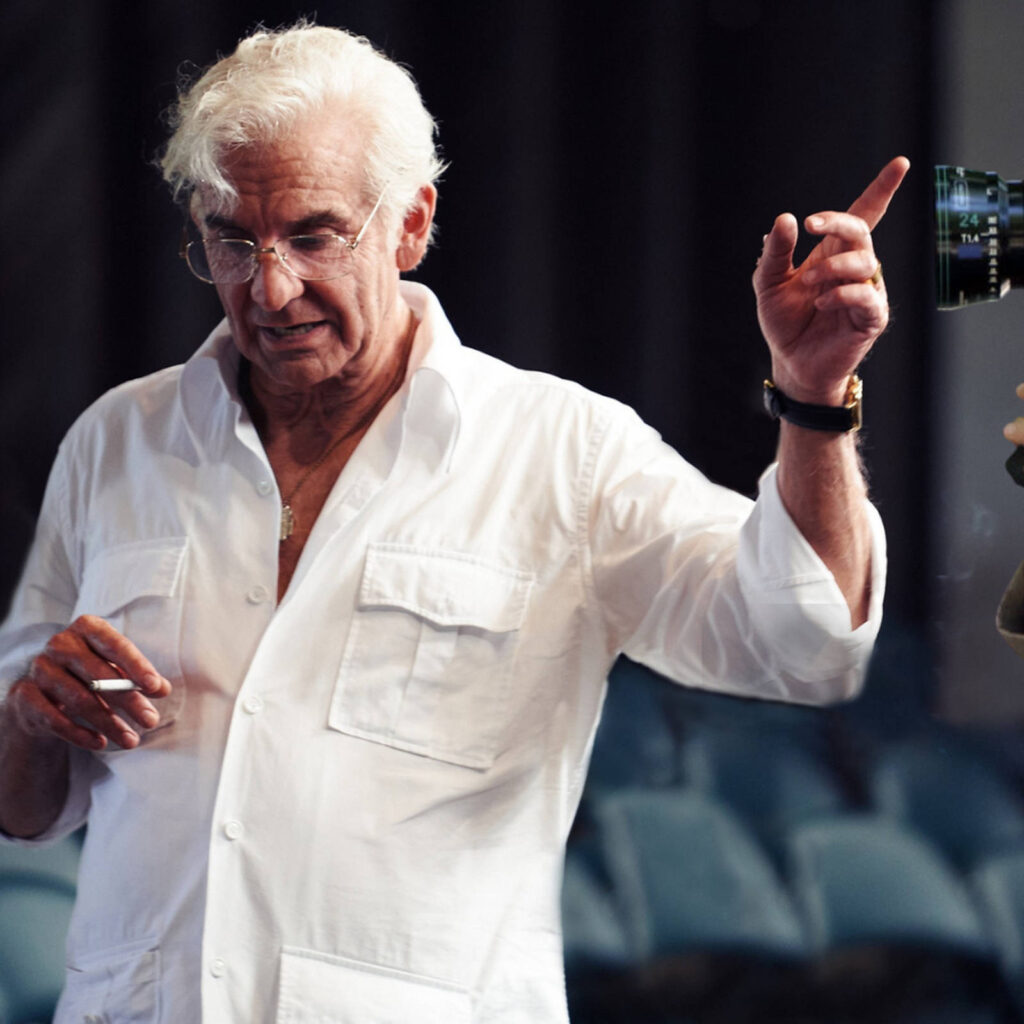

Lynn (Zipfel) Venhaus has had a continuous byline in St. Louis metro region publications since 1978. She writes features and news for Belleville News-Democrat and contributes to St. Louis magazine and other publications.
She is a Rotten Tomatoes-approved film critic, currently reviews films for Webster-Kirkwood Times and KTRS Radio, covers entertainment for PopLifeSTL.com and co-hosts podcast PopLifeSTL.com…Presents.
She is a member of Critics Choice Association, where she serves on the women’s and marketing committees; Alliance of Women Film Journalists; and on the board of the St. Louis Film Critics Association. She is a founding and board member of the St. Louis Theater Circle.
She is retired from teaching journalism/media as an adjunct college instructor.

